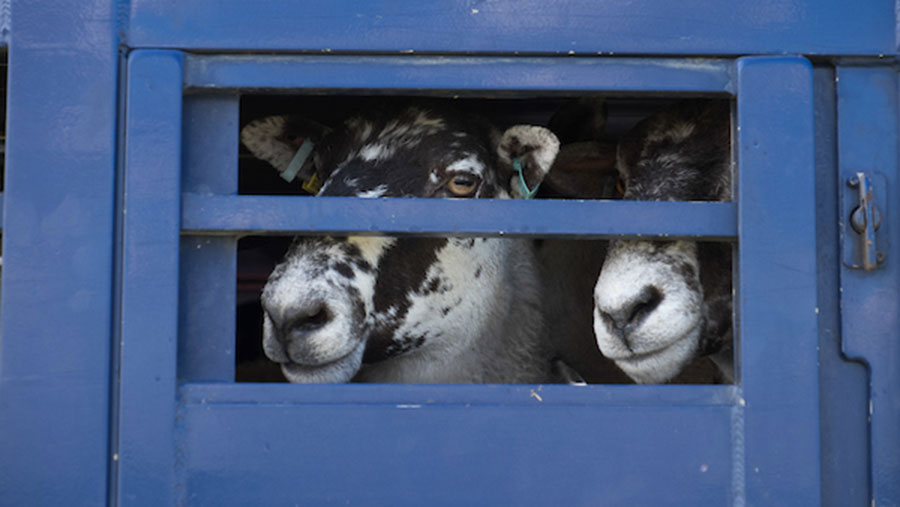Vets wade into row over livestock exports
 © Tim Scrivener
© Tim Scrivener Animal welfare must be at the heart of any government decision on livestock exports after the UK leaves the European Union, say vets.
The British Veterinary Association (BVA) said it recognised there was an increasing political appetite to improve live animal transport after Brexit.
But it said any improvements should be evidence based.
See also: Gove U-turn on live exports fuels no-deal Brexit fears
The statement comes amid renewed efforts by campaigners who are calling for a ban on livestock exports from the UK – a trade that exporters say is essential.
The association said it supported current UK legislation and would like to see better implementation of existing laws governing the way animals are transported.
Standards
It said proposals to improve welfare during transport should embrace all forms of transport and include welfare issues before, during and after movement.
In an updated position statement, it said this would help to ensure that a well-defined set of animal welfare standards are met for the entirety of any journey.
BVA president Simon Doherty said: “Any kind of movement has the potential to impact on an animal’s health and welfare.
“Ideally, we’d like to see livestock slaughtered close to the point of production, as long as all legislative health and welfare standards can be maintained.
“However, we recognise the high standards of welfare in the UK and support better implementation of current legislation.”
Evidence
Mr Doherty said the BVA recognised that journey length was not the only influencer of welfare conditions for animals.
“Transport needs to be looked at as a whole rather than focusing on single factors,” he said.
“The most important thing for government to do is to consider the evidence base when it weighs up options for making improvements.”
Earlier this month, Green MEP Keith Taylor said the long-distance transport of livestock was barbaric and should be banned.
“The latest resumption of calf exports through Kent highlights the fact that we need a collaborative effort on both sides of the Channel to end this suffering,” he said.
Backtrack
Mr Taylor recently wrote to Defra secretary Michael Gove, accusing him of backtracking on plans to ban livestock exports post Brexit.
Mr Taylor favours stronger regulations, including a four-hour limit on live transportation for slaughter and an eight-hour time limit on any live animal transport.
It was impossible to meet the welfare needs of animals during long-distance transport and the UK failed “time and time again” to enforce animal welfare rules, he claimed.
Mr Gove has previously supported a ban on live exports, but indicated last year that he now favours restrictions to the trade rather than outlawing shipments.
